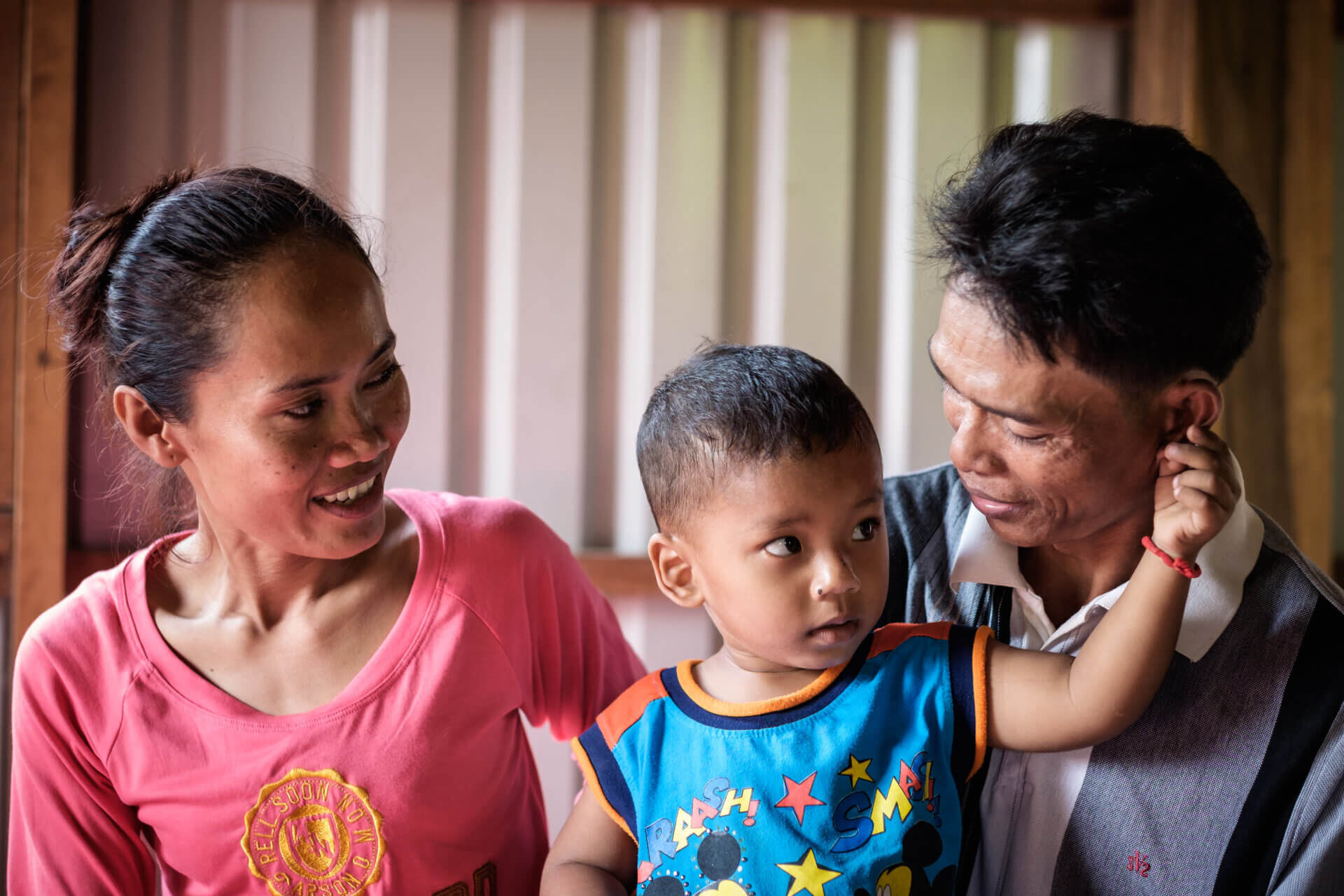At Childhood, we are convinced that many cases of sexual abuse of children can be prevented. But what do we actually mean when we say this? Naturally, there is no 100-percent protection or simple solution for preventing the sexual abuse of children, but there is a lot we can do to reduce the risks and mitigate the consequences of abuse, such as:
Working to ensure that every child has at least one secure and loving relationship with an adult while growing up
Children who lack adult supervision, or whose caregivers are incapable of providing the comfort, security and recognition that a child needs, are at an increased risk being subjected to violence and abuse. There is also a greater risk that they might expose others to abuse or end up in violent relationships. You can be this dependable adult for your children and those of others.
Adults demonstrating in every day life that they respect children’s boundaries and integrity
If you learn at an early stage that you are worth listening to and that your boundaries are respected, there is a greater likelihood that you will be able to and have the courage to speak out and protect yourself if someone violates your physical integrity. This also increases the likelihood that a child will have the confidence to tell someone if something has happened or if someone tries to get them to do something that is against their will.
Teaching and talking to children at an early stage about integrity, about good and bad secrets, about what is acceptable for others to do to you, and what you can and cannot do to others
If children are to understand and put into words what happens to them, they need to be able to talk about the body at an early age, about which parts are private, where the boundary is for what others can do to them and what they themselves cannot do to others.
Creating safe spaces for children where they can seek support and help on their own terms
Preschools, schools, after-school care facilities, churches, etc., can be incredibly important to children as places where they can develop trusting relationships with adults other than their parents and in whom they can confide if something is not right. Online platforms that offer children the possibility to talk directly and anonymously if they feel unsafe or have ended up in a situation they are ashamed of or cannot get out of by themselves, also make a key contribution in helping children to break their silence as early as possible.
Working to counteract violence in intimate relationships or abuse in families where children are growing up
Witnessing or being subjected to violence as a child, or growing up in an environment where the adults are incapable of putting the children’s needs ahead of their own increases the risk of violence and abuse. It also gives rise to the risk that the child will contribute to a continued spiral of violence in later years.
Presenting a nuanced imaged of typical victims and perpetrators
If we hold fast to the image of the dirty old man that subjects small children to abuse using violence, we risk missing the situations that do not fit into our idea of “real abuse” (which are the majority). And if we have a too stereotypical image of who the victims might be and how they are expected to react, we risk completely missing or misinterpreting signals from children who have been abused.
Providing early and qualified support for children who are victims of violence and abuse
The risk of being sexually abused is greater for children who have already been abused once. By providing early and qualified support to the child and its relatives, this risk can be reduced. The way in which those in the child’s immediate vicinity react and act following the abuse is very important for how the child feels and develops afterwards.
Thinking about how we talk about sexual abuse in everyday life
If a child hears that rape is worse than death and that lives are destroyed forever, it can be difficult for the child to admit to themselves what has happened and even more difficult to tell others about it.
If perpetrators are described as monsters who deserve the death penalty, it can be difficult for a child to understand that what has been done by a boyfriend, stepfather or trainer, who the child has also liked, is actually sexual abuse.
If accusations of abuse are excused in the media by saying that the person abused behaved in a certain way or if too much responsibility is put on young girls not to expose themselves to risky situations, the result could be that the feelings of shame and guilt are strengthened and it becomes difficult for children to speak out.
Reacting early and intervening if children and young people commit sexual abuse against other children or display sexual behavior problems
One third of all sexual abuse of children is committed by minors. Half of all adult perpetrators committed their first abuse of a child before the age of 18 – when they themselves were children. All too often, actions are trivialized and excused when a minor has abused another child. There may be many reasons for abuse by and sexual behavior problems among children, but it is always important to react and intervene to ensure that the right support and treatment can be provided and the risk of other children being abused is reduced.of other children being abused is reduced.
Working to change social norms that say that children must always obey adults, that boys and girls are expected to behave in a certain way, or that normalize sexual harassment.
Ensuring that professionals who meet children have the right knowledge and guidelines to be able to prevent, identify early, act and cooperate in relation to children who have been abused or risk being subjected to violence and sexual abuse.
Photo: private
